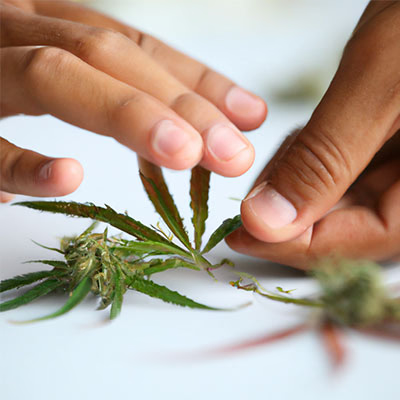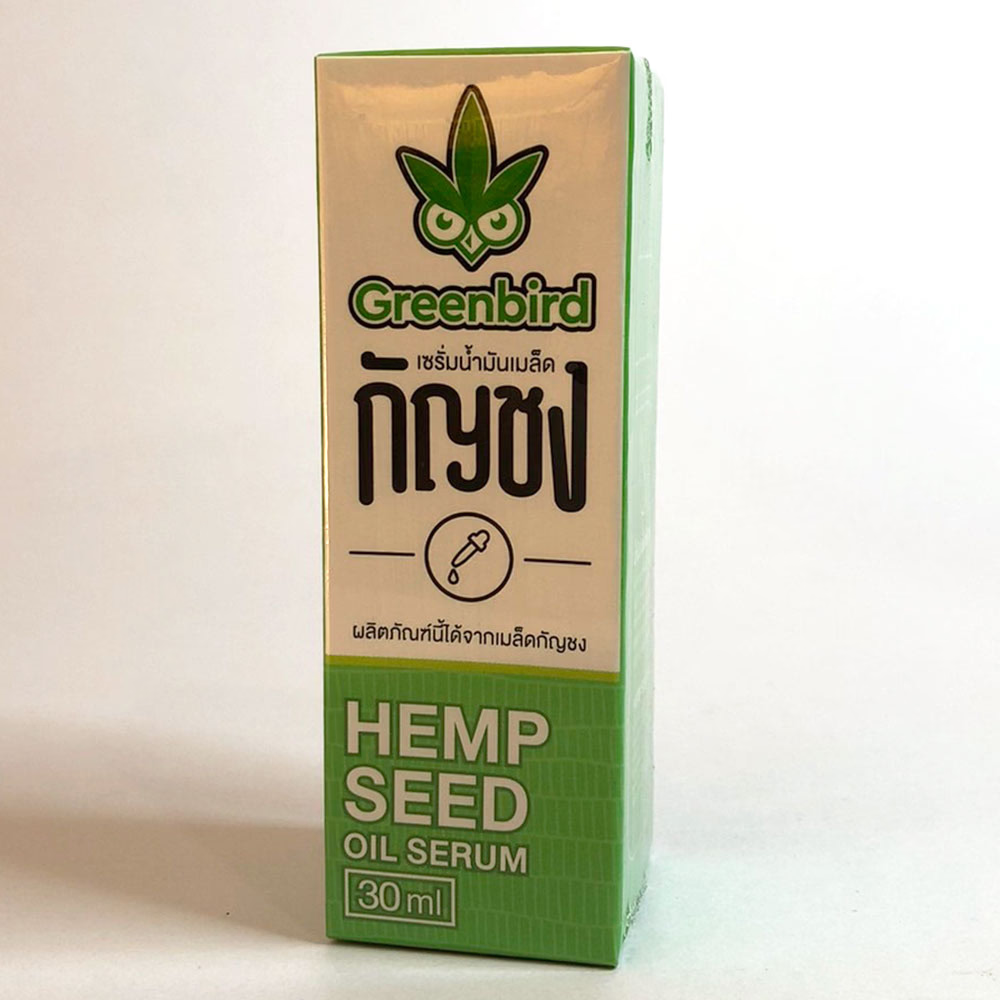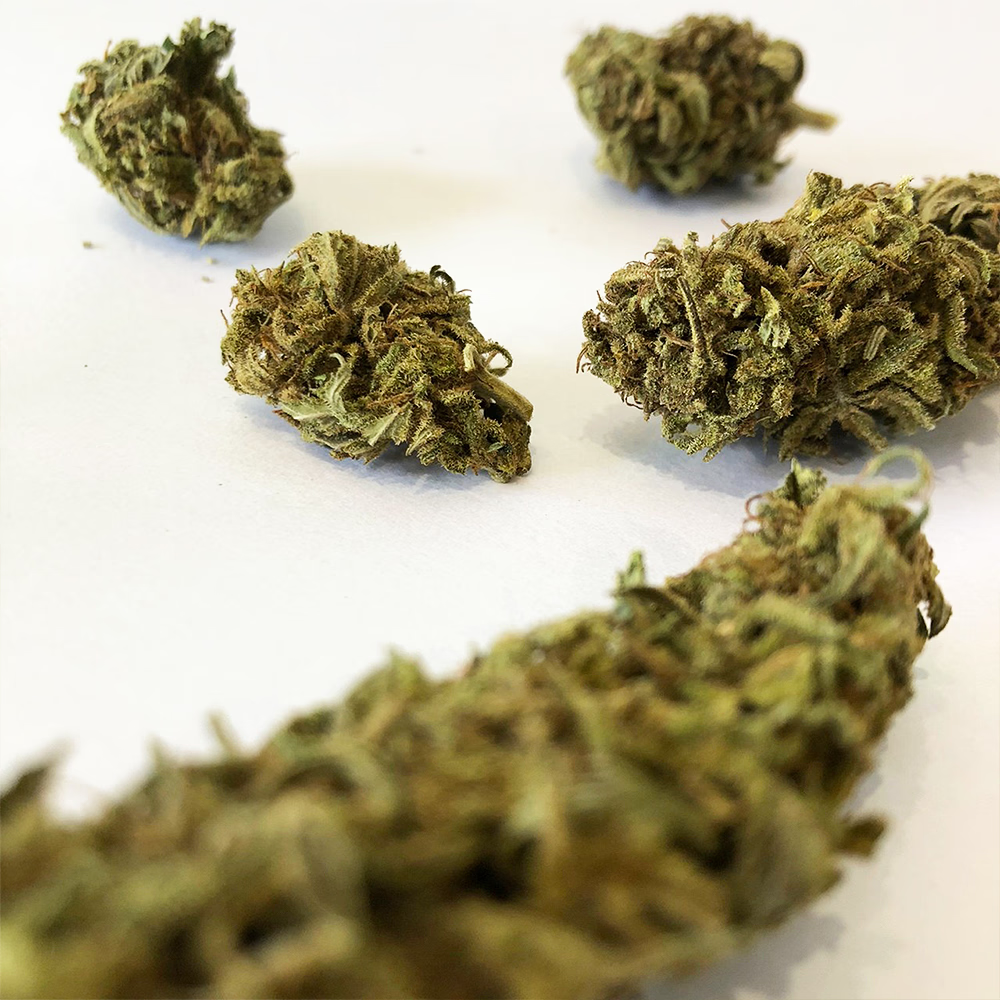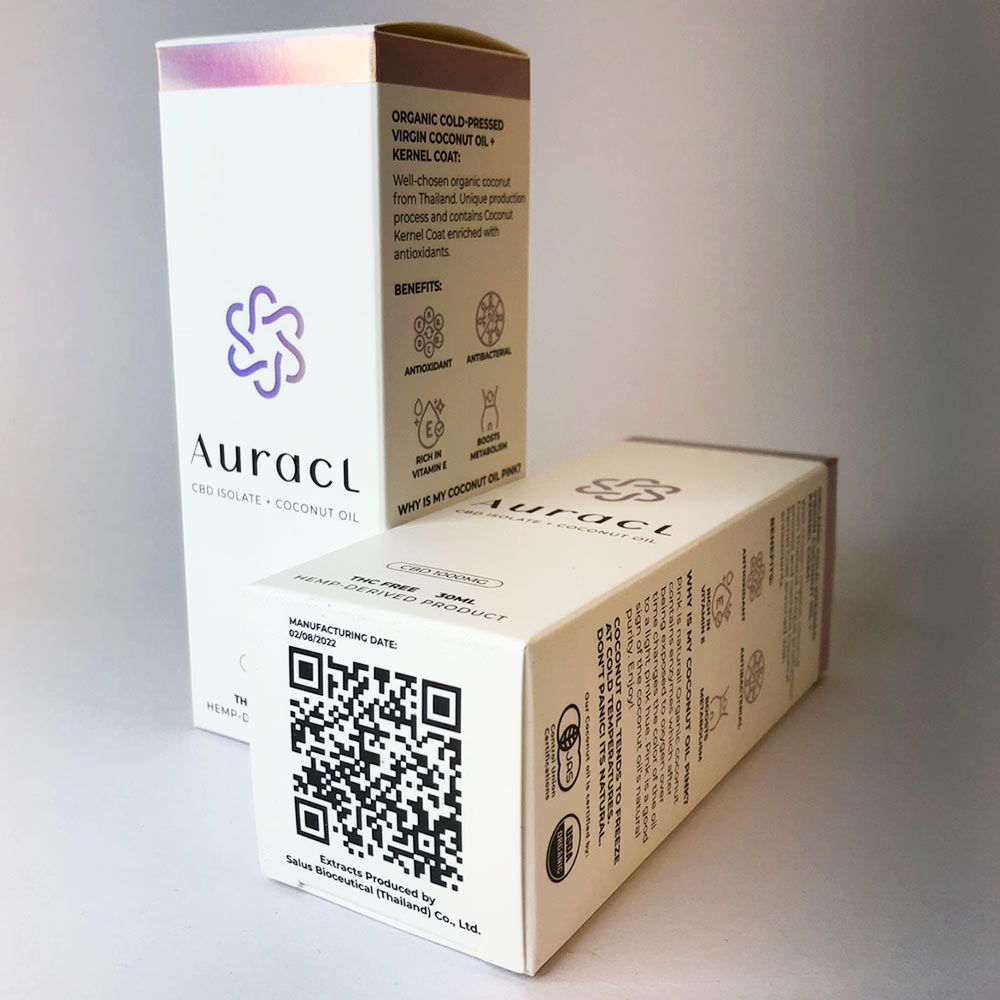Allergy to Marijuana Symptoms, Causes, & Prevention Tips

Allergic Reactions to Marijuana Symptoms and Diagnosis
Cannabis is a well-known recreational substance that has long been used for its therapeutic properties. Even though many people are aware of the advantages of marijuana, some people are allergic to it.
Marijuana allergies can result in severe symptoms, including anaphylactic shock. Understanding the signs, causes, and diagnosis of marijuana allergies is crucial.
The signs of a marijuana allergy can differ from person to person. Usually speaking, it can lead to hives, itching, redness, swelling, breathing problems, chest tightness, wheezing, and coughing. Moreover, it can result in anaphylactic shock, a potentially fatal allergic reaction that must be treated immediately.
It is yet unclear what causes an allergic reaction to marijuana. Yet, it's thought that the proteins in the plant might be to blame. A reaction to plant pollen, fungi, or other chemicals found in the plant is an additional potential cause.
Doctors typically use a skin test to identify marijuana allergies. A small amount of marijuana extract will be applied to the skin during this test, and any reaction symptoms will be examined. The doctor might also do a blood test to check the blood for antibodies, which could indicate an allergic reaction.
After a marijuana allergy has been identified, it is crucial to stay away from the drug altogether. If your doctor prescribes medical marijuana, be essential to let them know if you have any sensitivities. In case of an allergic response, carry an EpiPen or other emergency treatment.
Understanding the signs, causes, and diagnosis of an allergic reaction is crucial because marijuana allergies can pose a significant health risk. You should consult your doctor immediately if you suspect you may be allergic to marijuana. You can avoid any adverse effects marijuana might have on you with the proper diagnosis and care.

Typical Cannabis Allergy Symptoms
For both its therapeutic and recreational applications, cannabis has attracted much attention in recent years. But did you realize that some people genuinely have cannabis allergies? Many people aren't even aware of allergies until they exhibit the symptoms. We'll look at the typical signs of cannabis allergy in this post and some management strategies.
One of the most typical symptoms of a cannabis allergy is a skin rash or hives. This typically manifests as painful or itchy red pimples on the skin.
Itchy or Watery Eyes: A cannabis allergy can also cause itchy or watery eyes. Sneezing, coughing, or a runny nose may accompany this.
Breathing Problems: If you have a cannabis allergy, you can have trouble breathing or wheezing. It's critical to get medical assistance immediately if you have any of these symptoms.
Swelling: Another typical sign of a cannabis allergy is swelling, particularly in the area around the eyes, face, or throat.
Nausea or Vomiting: If you have a cannabis allergy, you can feel sick or vomit.
Asthma Attack: A cannabis allergy can also cause asthma attacks. Chest tightness, coughing, or breathing problems may result from this.
Anaphylaxis: Occasionally, individuals who are allergic to cannabis may experience anaphylaxis. This allergic reaction is severe and life-threatening, necessitating urgent medical care.
After smoking cannabis, you must get immediate medical assistance if you develop any of these symptoms. Your doctor may prescribe epinephrine or antihistamines to in treating the symptoms. Your doctor might, in some circumstances, advise complete abstinence from cannabis use.
It's crucial to discuss cannabis allergies with your doctor if you have any doubts. They can suggest the most effective treatment for you and assist you in determining whether you are allergic.
Understanding Cannabis Allergy Causes
More and more individuals have been consuming cannabis for recreational and medical uses in recent years, which has increased its popularity. Yet, some people are allergic to cannabis, just like they are to any chemical.
Even though each person's cannabis allergies may manifest differently, the underlying causes are frequently the same. In this post, we'll talk about the reasons why people get allergic to cannabis as well as what you can do if you think you could be one of them.
It's crucial first to realize that the plant's proteins bring on cannabis allergies. The immune system of a person's body could overreact and result in an allergic reaction if exposed to specific proteins. All varieties of cannabis, including marijuana and hemp, contain these proteins.
Sneezing, runny nose, itching eyes and skin, and wheezing are typical signs of a cannabis allergy. In some instances, a cannabis allergy can also result in anaphylaxis, a potentially fatal reaction. Usually, anaphylaxis necessitates prompt medical intervention.
Cannabis' flavor comes from flavonoids, which can also give some people adverse responses. The terpenes and flavonoids in the cannabis plant and the proteins in the plant are other critical factors in cannabis allergies. The terpenes that give cannabis its distinctive aroma might also cause allergic reactions in certain people.
It's crucial to visit a doctor if you believe you could have a cannabis allergy. They can suggest the most effective treatment and assist with an allergy diagnosis. Also, you must refrain from smoking cannabis if you suspect an allergy.
You can lessen your chance of developing an allergic reaction to cannabis in several ways. First and foremost, it's crucial to use cannabis products that haven't been cultivated with pesticides or other toxins.
Also, you must always purchase cannabis items from a reliable supplier to guarantee their high quality. Finally, it's critical to avoid utilizing cannabis products that have been overly processed or concentrated because they raise the possibility of an allergic reaction.
In conclusion, the proteins, terpenes, and flavonoids present in the cannabis plant are the culprits of cannabis allergies. It's crucial to visit a doctor if you suspect a cannabis allergy to have a precise diagnosis and learn about your best course of action.
Also, it's crucial to purchase cannabis goods from a reliable vendor and to stay away from overly processed or concentrated items. You can lower your risk of experiencing an allergic reaction to cannabis by paying attention to these suggestions.

Ways to Reduce the Chance of a Cannabis Allergy
Cannabis is becoming more and more popular. Even though they are infrequent, cannabis users should be aware of possible allergic responses. Cannabis allergies can occasionally be severe and even fatal. Therefore it's critical to be aware of the possibility of an allergic reaction and to know how to reduce the risk.
Some people may experience an allergic reaction, typically a rash, hives, or breathing problems. Cannabis pollen, which can be inhaled or consumed, is the most prevalent allergy connected to cannabis.
As cannabis buds are touched, opened, or smoked, cannabis pollen, usually on their surface, is expelled into the atmosphere.
Avoiding all contact with cannabis if you have a cannabis allergy is the best method to prevent a reaction. You may take steps to lower your chance of an allergic reaction if you need to consume cannabis and are a recreational user or medical patient.
Talking to your doctor should be your initial course of action. Your doctor can identify your allergy and make the finest treatment suggestions. Your doctor could advise utilizing cannabis products to minimize contact with the pollen if you have a cannabis allergy. For instance, you might prefer using a vaporizer or edible product to smoking cannabis.
You can take further steps to lower the likelihood of an adverse reaction and communicate with your doctor. First, make sure you get your cannabis goods from reliable vendors.
Make cautious to verify that the products are pollen- and contaminant-free. Make sure the dispensary staff members can answer your queries by asking them.
Using cannabis grown organically is another strategy to lower your risk of experiencing an adverse response. Without the use of pesticides, which may include allergies, organic cannabis is grown.
Also, because organic cannabis is grown in a controlled environment, less pollen may be emitted into the atmosphere.
Finally, make sure to get medical help if you do have an adverse response. Get aid as soon as possible because an allergic response might be dangerous. Your doctor may prescribe medication to ease the symptoms and prevent the response from worsening.
Cannabis allergies are uncommon, but they can happen. Avoiding all contact with cannabis is the best action to prevent an allergic reaction. To lessen your chance of an allergic reaction if you decide to use cannabis, see your doctor and take the actions above.
Taking Care of a Cannabis Allergy
Many people know the hazards and potential adverse effects of cannabis use. What about allergies, though? Is it conceivable to have a cannabis allergy? Yes, there is a chance that consuming cannabis could cause an allergic reaction.
Some people may be allergic to cannabis, just as others may be allergic to specific foods, plants, or even medicines. Cannabis allergies can result in various symptoms, such as scratchy skin, rashes, breathing difficulties, and even anaphylaxis, a severe and potentially fatal reaction.
It's crucial to take action to control your symptoms and stay away from cannabis if you suspect you may be allergic to it. Here are some suggestions for treating a cannabis allergy.
See a physician: Before taking cannabis, discuss your allergies and any possible side effects with your physician. Your medical professional can assist you in determining whether you are allergic to cannabis and may be able to suggest substitute therapies that won't result in an allergic reaction.
Avoid contact with cannabis: If you have a cannabis allergy, staying away from the drug is crucial. This entails avoiding cannabis-containing goods, including smokable flowers, flowers, extracts, and edibles.
Wear protective gear: If you must come into touch with marijuana, wear gloves, a face mask, and goggles. This will lessen the possibility of an adverse reaction and prevent contact with the material.
Use antihistamines: If you respond to cannabis in an allergic way, using an antihistamine may help to lessen the symptoms. Discuss which antihistamine is best for you with your doctor.
Maintain hydration: If you're allergic to cannabis, maintaining fluids is critical, as dehydration might exacerbate your symptoms. Water is your best beverage; steer clear of alcoholic and caffeine-containing ones.
Be calm and avoid stressful circumstances because tension might exacerbate your symptoms. Take a break from everyday activities, stroll, or engage in deep breathing exercises to reduce stress.
An allergic reaction to cannabis is possible, albeit it's uncommon. It's crucial to take action to control your symptoms and stay away from cannabis if you suspect you may be allergic to it.
You can lower your risk of experiencing an adverse reaction while still taking advantage of the health advantages of cannabis by heeding the advice above and consulting your doctor.
Potential Cannabis Allergy Complications
Cannabis allergy is a growing problem as the plant's acceptance among consumers increases. Cannabis users should be aware of the potential consequences of cannabis allergy, even if it is still comparatively uncommon. The definition of cannabis allergy, symptoms that can point to an allergy, and probable side effects are all covered in this article.
An allergic reaction to cannabis-related proteins is known as a cannabis allergy. This resembles an allergy to pollen or other plants like ragweed. Cannabis allergies can be brought on by contact with the plant, consumption, and inhalation.
Cannabis smoke, vapor, or particle inhalation can result in allergic symptoms such as coughing, sneezing, and breathing difficulties. An allergic reaction to cannabis consumption can also result in nausea, vomiting, and abdominal pain. Skin sensitivity, rashes, and hives can all result from contact with the plant.
Individuals with cannabis allergies may experience different symptoms. Coughing, wheezing, sneezing, itchy eyes, runny nose, and breathing difficulties are typical symptoms. You might want to speak with your doctor if you suffer from these symptoms after consuming cannabis to determine whether you have an allergy.
It is crucial to take precautions to prevent exposure to the plant if you have been told you are allergic to cannabis. This may entail staying away from cannabis plants and smoking marijuana.
If you touch the plant, wash your hands, face, and other exposed flesh. Moreover, you ought to refrain from consuming cannabis-infused goods like edibles.
Even though allergies to cannabis are very uncommon, it's crucial to be aware of any potential side effects. Individuals allergic to cannabis may develop life-threatening allergic reactions, such as anaphylaxis. A severe, potentially fatal allergic reaction known as anaphylaxis can make breathing difficult, cause throat swelling, and result in shock. Any of these symptoms should prompt you to seek medical assistance right away.
Cannabis allergy can result in problems other than anaphylaxis. Individuals allergic to cannabis may have bronchospasm, constricting the airways and making cake breathing difficult. Moreover, they could develop skin rashes, hives, and other allergic symptoms like nausea, vomiting, and stomach pain.
As cannabis's popularity rises, cannabis allergies are becoming more and more prevalent. It is crucial to be aware of the potential issues that could happen if you have an allergy, even if they are still relatively uncommon.
You must check with your doctor whether you have an allergy or suffer from the above symptoms. It is crucial to avoid exposure to the plant if you have been told you are allergic to cannabis to avoid any potential consequences.



